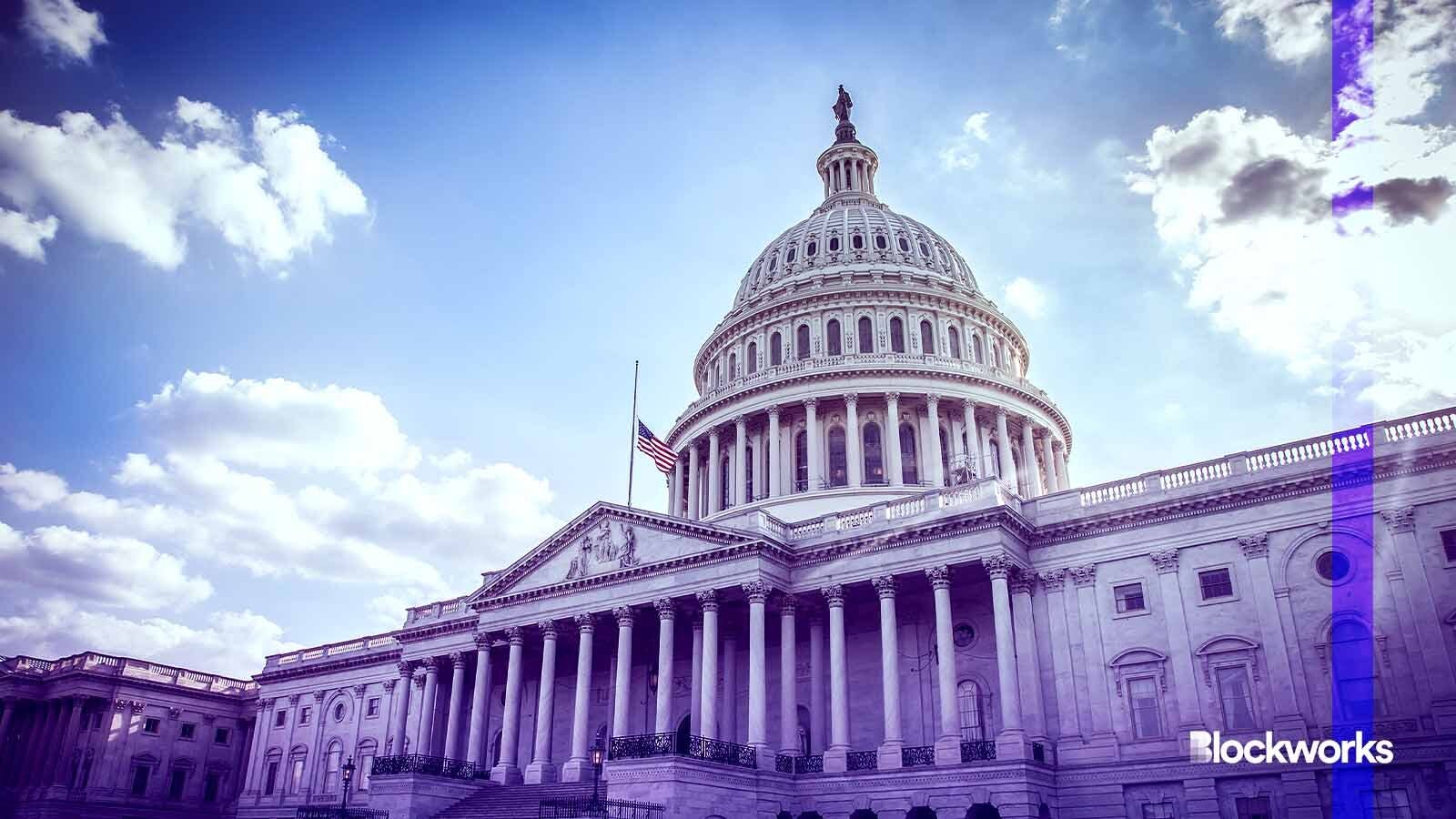Washington shouldn’t give in to crypto panic
Congress needs to consider two new crypto acts carefully — because if enacted, these bills would effectively destroy the American digital asset industry

Colin Dewar/Shutterstock modified by Blockworks
Today, former United States military service members, intelligence officers and national security professionals sent a letter to Congress to push back on the current narrative around terrorism and digital assets. The letter corrects the record on recent reporting of Hamas’ use of cryptocurrency that is driving calls for legislation counterproductive to our nation’s national security.
The fact is that blockchain technology is neutral.
Just as the internet was guided by the principles of open source code and democratized access, so too are new emerging protocols that use distributed ledger technology guided by the same ethos.
Imagine if the United States government had only allowed vetted and approved developers and users to access the internet in the 1990s; the tremendous benefits we now enjoy from the explosive growth of the internet would never have materialized. Keeping the internet free and open to build upon (a right which ultimately had to be enforced by the courts) was not without consequences. In fact, bad actors continue to use the internet for nefarious purposes today.
But, as a society, we calculate that the benefits of a free and open Internet outweigh the risks. This also helps to spread and support American values and interests, and allows for cutting-edge tools that are developed for use by law enforcement and security professionals to hunt down and prosecute illegal activity and national security threats.
Blockchain technology has attracted mostly good actors looking to build applications for mainstream use, but admittedly has also attracted some unscrupulous actors. However, the industry’s antagonists have an opportunistic habit of amplifying the nature of the problem of illicit finance facilitated by digital assets. At present, transactions involving illicit addresses represent a very small fraction of total transaction volume: Only 0.24% of all digital asset transactions in 2022, compared to estimates of 3-5%, using traditional finance and cash globally. Rather than blaming a technology that cannot be uninvented, we should focus our resources on eradicating those who wish to exploit it with criminal intent.
Why current proposals will not work
Following any crisis — or sensational media report — Washington feels the urge to do something, which is understandable.
However, the Crypto-Asset National Security Enhancement and Enforcement Act of 2023 (the “CANSEE Act”) and Digital Asset Anti-Money Laundering Act of 2023 (DAAMLA) proposals would not effectively address concerns over the use of digital assets in illicit finance. They would ultimately make the work of law enforcement and national security professionals more difficult.
Compliance with the proposed measures would be impossible and would push the vast majority of the digital asset industry overseas, providing increased liquidity for unregulated offshore exchanges and draining the US of valuable expertise and visibility into the blockchain space.
Congress should consider the potential harm of these bills.
Punishing well-intentioned entrepreneurs for writing innovative code is not the American way. The CANSEE and DAAMLA Acts, as crafted, would force centralization onto developers of DeFi networks, negating the very purpose of the technology. Additionally, no startup or single developer would be able to comply with a law that forces them to hire compliance departments of a similar scale to the big Wall Street banks. If faced with these unmanageable constraints and practical costs, these developers would be forced to leave the US.
Further, CANSEE and DAAMLA would apply the Bank Secrecy Act (BSA) to decentralized ledger technology, defeating the entire purpose of blockchains. This will not benefit American innovation, and would not solve the problem.
Read more from our opinion section: Phones and the internet aren’t blamed for terror finance. Crypto shouldn’t either.
Open public blockchains provide trust through decentralized technology, transparent code and public accountability, eliminating the need for intermediaries. Traditional regulations like the BSA require collecting sensitive personal information from users and, if applied, would undermine unique benefits and introduce new risks associated with centralized intermediaries to digital asset ecosystems, thus compromising user privacy and cybersecurity. Look no further than the numerous hacks and data breaches of key US companies and federal agencies to understand the risks created by increasing centralized attack vectors.
If enacted, these bills would effectively destroy the American digital asset industry.
The decision is both stark and clear: American values can fuel the next generation of infrastructure, providing immense soft and hard power benefits, and providing tools to protect the most vulnerable people in the world and weaken the worst actors. Otherwise, authoritarian, totalitarian, criminal and other malign actors will control this technology and its burgeoning industry.
American innovation at a crossroads
Washington stands at a crossroads: Will we combat terrorism directly and empower law enforcement and security professionals with enhanced digital weaponry and tools? Or will we punish American entrepreneurs who are laying the groundwork for the upgraded financial applications of the future? Will we give in to fear and push this new technology out of the United States? Or study it, develop it and embrace its benefits to ensure our nation leads the next wave of digital transformation and security, making it harder for illicit finance and money laundering to flourish worldwide?
We must ensure we proceed deliberately, embracing the next wave of technological innovation here at home and ensuring crypto networks can safely flourish in the United States.
Get the news in your inbox. Explore Blockworks newsletters:
- The Breakdown: Decoding crypto and the markets. Daily.
- 0xResearch: Alpha in your inbox. Think like an analyst.






